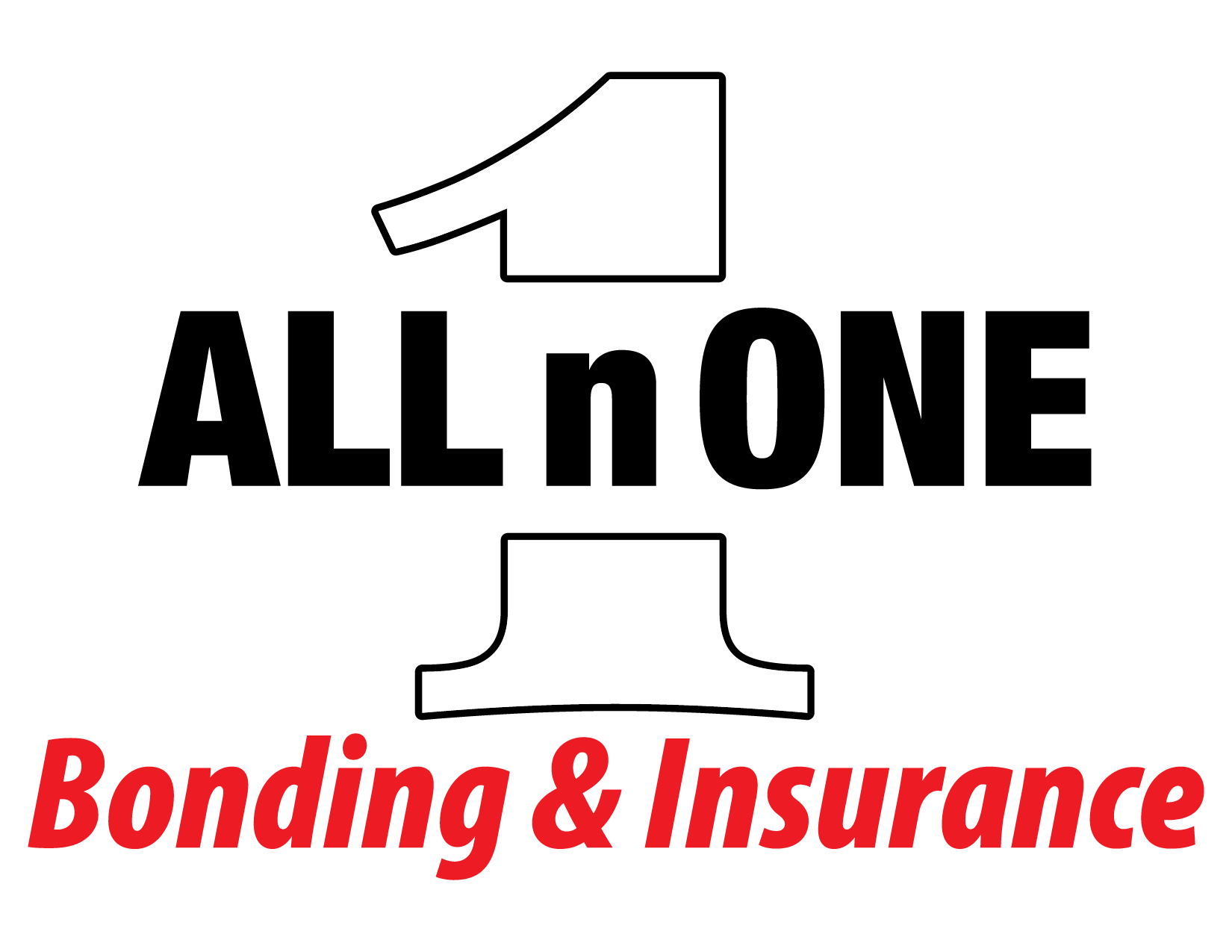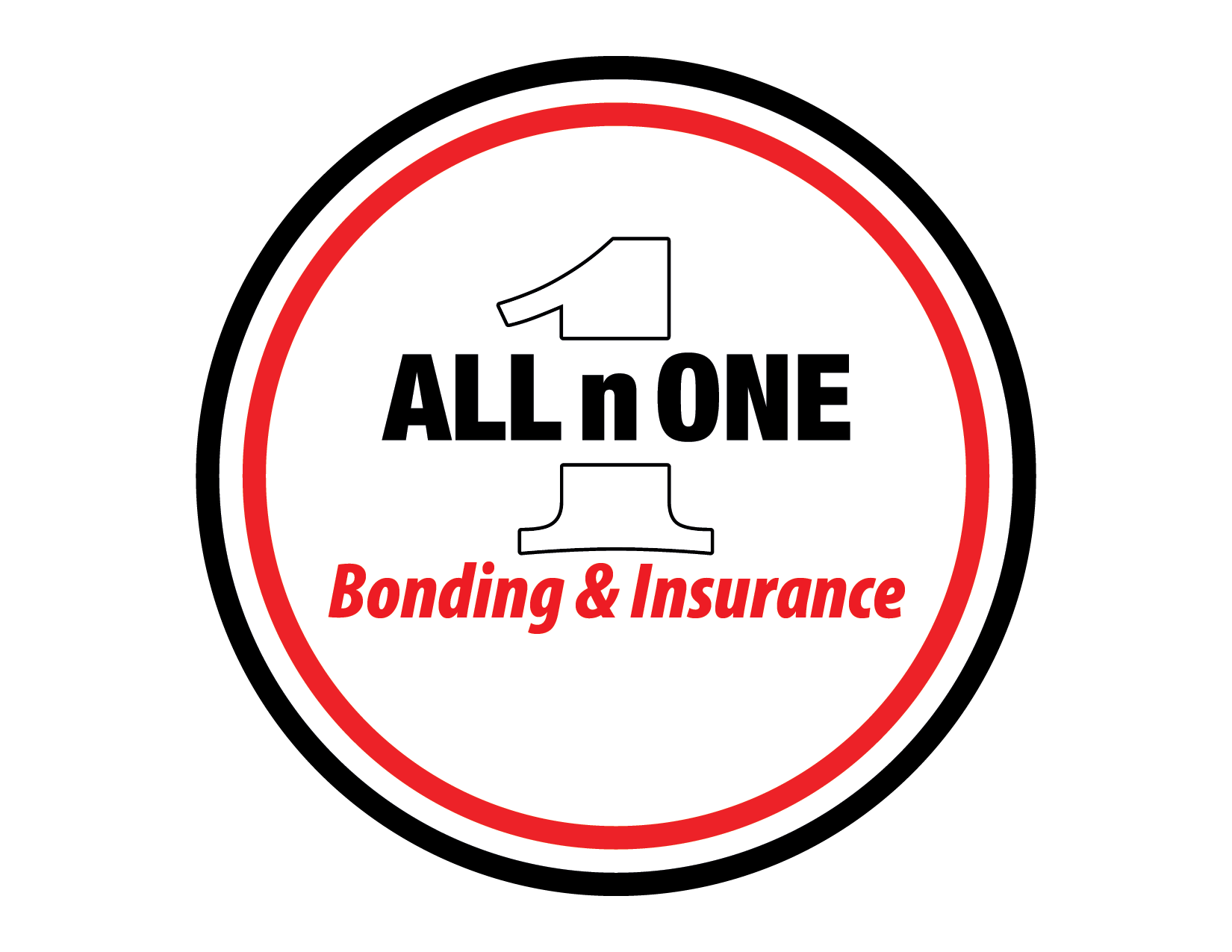In this post, we explore whether E&O insurance is worth getting if you already have a notary bond. We’ve chosen this topic because, while a notary bond offers protection to the public, E&O insurance provides important additional coverage.
The information in this post is based on All n One Bonding and Insurance’s years of experience in the industry.
E&O Insurance and Notary Bonds – Key Takeaways
- Errors and Omissions (E&O) insurance provides critical protection for notaries and works hand-in-hand with notary bonds.
- While notary bonds primarily protect the public, E&O insurance safeguards notaries from financial losses due to unintentional errors or omissions.
- E&O insurance covers legal fees, settlements, judgments, and other costs related to claims against notaries for professional negligence or mistakes, up to the policy limit.
- E&O policies are typically “claims-made,” meaning the alleged error and claim filing must occur during the active policy period for coverage to apply.
- Policy terms for E&O insurance can range from 1 to 4 years, with longer terms offering potential cost savings and shorter terms providing flexibility.
- Coverage limits for E&O policies vary, with options ranging from $10,000 to $100,000. Higher limits offer more protection but also come with higher premiums.
- Prior Acts Coverage can protect against claims for errors that occurred before the policy was purchased, subject to a Retroactive Date.
- Exclusions in E&O policies define what is not covered, such as criminal acts, known wrongful acts, and bodily injury.
- Notaries can benefit greatly from having E&O insurance, as it offers peace of mind, financial protection, and a competitive advantage in the marketplace.
Notary Bonds Recap From Past Posts
We’ve already explored, in other writings, aspects of notary bonds, including what a notary bond is (see What Is A Notary Bond?) and the process of obtaining one (see How To Get A Notary Surety Bond.)
Additionally, we’ve detailed how notary bonds protect the public from financial harm. See All About Notary Bonds to learn more.
What This New Post Covers
This new post answers the question, “Is E&O insurance worth getting if you have a notary bond?”
To see the answer, jump to: Is E&O Insurance Worth Getting If You Have A Notary Bond?
Otherwise, let’s get started!
Understanding E&O Insurance
Errors and Omissions (E&O) insurance works hand in hand with notary bonds to protect notaries and their customers. While notary bonds protect the public, E&O insurance provides notaries with personal coverage.
Essentially:
If a notary is sued for an error or omission, E&O insurance can help cover legal costs and any resulting settlements or judgments, up to the policy limit. This protection is critical because notary bonds alone won’t provide coverage in the event of a lawsuit.
Note: Depending on the industry and context, E&O insurance may also be known as professional liability insurance, professional indemnity insurance, or even malpractice insurance. In this post, for the sake of clarity, we will stick with the term errors and omissions insurance (E&O insurance).
The Scope of E&O Insurance Coverage for Notaries
E&O insurance covers quite a large range if your policy is good and can include:
- Legal fees and court costs for defending against claims of professional negligence.
- Settlements and judgments from lawsuits for notarial errors or omissions.
- Financial losses due to unintentional mistakes during notarization.
- Claims of misrepresentation, bad faith, or incorrect advice.
- Personal injury accusations and property damage during notarial services.
E&O Coverage Duration
E&O policies have durations typically ranging from 1 to 4 years. Each duration has different advantages.
A longer policy term may save on cost over time, as you can lock in rates and avoid increases in your premium. E&O insurance premiums have been rising due to carrier rate increases and changes in underwriting risk factors, making long-term policies a good idea.
Meanwhile, a shorter term offers flexibility if your needs change or you decide to switch insurers.
Disclaimer: The information provided regarding the scope of Errors and Omissions (E&O) Insurance coverage for notaries is intended for general informational purposes only. Insurance policies, including the extent of coverage and exclusions, can vary based on a multitude of factors. Contact us for more information. Our experts are here to assist you in navigating the complexities of E&O insurance to ensure you are adequately protected.
How Much E&O Insurance Covers for Notaries
E&O insurance policies offer coverage from $10,000 to $100,000, with $25,000 being a common limit for a one-year policy.
E&O Insurance Claims and Active Coverage
E&O insurance typically works on a “claims-made” basis. This means that for a claim to be covered, two conditions must be met:
- The alleged error or omission must occur while the policy is active.
- The claim must be filed during the active policy period, either by the client or another party.
To make sure you’re always protected, it’s wise to maintain your coverage without any lapses.
Side Note About Policy Limits:
When deciding on policy limits, how many notarizations you perform and the types of documents you handle should be considered.
The Financial Wisdom of Getting E&O Insurance
Typically, notaries will pay anywhere from $50 to $500 annually for E&O insurance in Nevada.
This is a small price to pay for peace of mind, especially when you compare the cost to a lawsuit, which can easily cost tens of thousands of dollars.
With that said, there are three things to remember about E&O insurance premiums:
- Higher coverage limits increase premiums but provide better protection.
- Rates can differ by state due to local regulations and claim frequency.
- Notaries with a history of claims may face higher premiums.
Get the protection your business needs with an experienced bonding and insurance company today! Contact All n One Bonding & Insurance.
Real-World Examples of E&O Insurance in Action
Here are three hypothetical examples that show why E&O insurance may be worth getting if you have a notary bond.
Example 1: Incorrectly Notarized Document Due to Improper Identity Verification
The Scenario:
Let’s say you’ve recently been given a weighty financial document to notarize, like a mortgage. You’re having a busy day, and you accidentally fail to verify the signer’s identity correctly.
It turns out the person isn’t who they say they are. Maybe you don’t check their ID thoroughly enough, which turns out to be fake. Whatever the case may be, you notarize the document, and suddenly, you have a problem.
Although an innocent mistake, the ramifications of this error can be far-reaching.
The Consequences:
The party who was supposed to sign the document may face financial losses or legal complications due to the fraudulent act.
To make matters worse, the affected parties may file a claim against you, the notary, for negligence in failing to properly verify the signer’s identity!
The Good News:
Fortunately, there’s a silver lining in a situation like this. It’s E&O insurance, which helps protect you from the financial impact of legal fees and court costs.
Moreover, if the court finds you liable for negligence, E&O insurance covers the settlement awarded to the plaintiff, up to the policy limit.
Example 2: Omission of Required Information in The Notarization Process
The Scenario:
Now, let’s say you’ve been asked to notarize an important legal document, like a deed transfer or a power of attorney. While you do your best to cover every detail, you accidentally leave out some key information.
Maybe you forget to include the date of notarization or the location, or you overlook all the required signatures. These are easy mistakes to make, but the consequences, again, can be far-reaching.
The Consequences:
The omission of information can invalidate the document and impact property transfers, legal agreements, etc. Moreover, the parties relying on the notarized document could face repercussions.
Picture a real estate deal falling through or a legal power of attorney being contested because of a simple oversight. It’s a bad scenario that no one wants to face.
To make matters worse, the affected parties may file a claim against you, the notary, for professional negligence.
The Good News:
Fortunately, again, this is where E&O insurance can help. As in Example 1, it helps cover your legal defense costs, as well as the settlement awarded to the plaintiff, up to your policy limit.
Example 3: Misinterpretation of Notarial Acts Leading to Incorrect Document Execution
The Scenario:
In this final scenario, you’re asked to notarize a complex legal document, like a trust. It’s not a simple document, so despite your best efforts, you accidentally notarize the document incorrectly.
Maybe you use the wrong notarial certificate or overlook the proper witnessing procedures. This mistake can happen to anyone, but the consequences are substantial.
The Consequences:
The incorrect execution can lead to disputes over estate distributions, and before you know it, the parties relying on these documents point the finger at you.
The Good News:
Just like in the previous examples, E&O insurance provides a vital safety net that cushions your business’s costs.
Coverage Options and Other Details for E&O Insurance
When it comes to E&O insurance, one size doesn’t fit all. Let’s look at some important aspects to ensure you have the right policy in place.
Claims-Made Coverage
As mentioned above, most E&O policies are “claims-made,” meaning they only cover claims made during the policy period.
Advantages of claims-made coverage include:
- Lower premiums than occurrence-based policies because the insurer is only responsible for claims filed during the active policy term, reducing their long-term risk exposure.
- Flexibility to adjust coverage limits and tailor the policy to your current needs when renewing.
Disadvantages of claims-made coverage include:
- Lack of coverage for claims filed after the policy expiration date, even if the incident occurred during the active policy period.
- Potential gaps in coverage when switching insurers or letting the policy lapse unless “prior acts coverage” is purchased.
Prior Acts Coverage
Prior Acts Coverage includes acts that occurred before the policy was purchased but were claimed during the active policy period.
Here’s an example of how Prior Acts Coverage would work in a real-life scenario:
Let’s say you’ve been working as a notary for a few years without E&O insurance. Recently, you decided to purchase a policy. A month after your policy starts, a claim is filed against you for an error that happened six months ago, before you had insurance.
If your E&O policy includes Prior Acts Coverage, you’ll be protected even though the error occurred before you bought the policy. This is helpful for professionals who are switching insurance providers or purchasing coverage for the first time.
However, Prior Acts Coverage doesn’t extend indefinitely into the past. Most policies will have a specific date, known as the Retroactive Date, which marks the earliest point in time for which prior acts are covered.
Note: Prior Acts Coverage is subject to the same per-claim and aggregate coverage limits as acts that occur during the policy period.
Coverage Limits
There are two main types of coverage limits: Per-claim and aggregate.
A per-claim limit is the maximum amount the insurance company will pay for any single claim.
An aggregate limit is the total amount the insurance company will pay for all claims combined during the policy period.
For example, if a notary has a policy with a per-claim limit of $25,000 and an aggregate limit of $100,000, the insurance company will cover up to $25,000 for each individual claim and up to $100,000 for all claims combined within the policy period.
E&O insurance providers offer various limits that can be tailored to the notary’s specific needs.
Deductibles
Another thing to remember about E&O insurance policies for notaries in Nevada is they often don’t have deductibles. Many policies start covering costs from the first dollar of the claim.
This helps simplify the claims process and reduces the financial burden on notaries. However, not all E&O insurance policies for notaries are like this.
Deductibles in E&O Insurance: Notaries Public vs. Notary Signing Agents:
E&O insurance policies for notaries often come without a deductible. However, there can be differences based on the notary’s role.
For instance, notary signing agents (NSAs) are trained to notarize loan documents in the more complex and high-risk mortgage and real estate industries.
As a result, notary signing agents may encounter E&O policies with deductibles. In states like Nevada, E&O policies for NSAs may offer $500 or $1,000 deductibles, with coverage amounts of $75,000 per claim and $150,000 aggregate.
This is just one example of the possible differences in E&O policies for notaries.
Exclusions
Exclusions in E&O insurance policies define what the policy will not cover. Common exclusions in E&O insurance include:
- Criminal, fraudulent, and dishonest acts.
- Known wrongful acts prior to the policy period.
- Bodily injury and property damage.
- Notarization for immediate family members.
- Improper fee collection.
- Lack of proper identification of signatories.
Furthermore, some E&O policies may have limitations on coverage territory or the exclusion of certain types of notarial acts.
E&O Insurance: A Diverse Landscape
While our focus is on E&O insurance for notaries, it’s worth taking a moment to appreciate the diversity of the E&O insurance landscape.
For example, in Nevada, E&O insurance for real estate professionals is available, with coverage up to $3,000,000. This high limit reflects the risks of real estate transactions.
The Importance of Finding the Right Type of E&O Insurance For Your Business
With the various types of E&O insurance available, finding the right policy for your business might seem overwhelming. However, rest assured that you’re not alone in this process.
We can help you find the coverage that best protects you and your business. Contact our experts Monday through Friday, 9 a.m. to 5 p.m. for assistance!
Is E&O Insurance Worth Getting If You Have A Notary Bond?
Yes!
E&O insurance protects you and your business financially and helps you build trust with your customers, letting them know you’re insured.
Moreover, when you break it down, E&O insurance is just a small fraction of your yearly notarial income—a small price to pay for the peace of mind and financial security that E&O insurance offers.
Finally, some clients may require or strongly prefer to work with notaries who carry E&O insurance. Having this coverage could open up new opportunities by making your services a more attractive choice.
E&O Insurance and Notary Bonds – Conclusion
This article covered the importance of Errors and Omissions (E&O) insurance for notaries and answered the question, “Is E&O insurance worth getting if you have a notary bond?”
For a full overview of the contents, please refer to the Key Takeaways section.
If you are a notary and want to protect your business, send us a message to request a quote.
Further Reading – 3 Errors and Omissions Insurance Questions
The following questions provide additional information about E&O insurance for notaries in Nevada.
Q1: What factors can affect the cost of E&O insurance premiums for notaries in Nevada, and how can I keep my costs down?
Factors Affecting E&O Insurance Premiums
- Higher coverage limits lead to higher premiums.
- Higher deductibles mean lower premiums but more out-of-pocket expenses for claims.
- A history of claims may result in higher premiums due to increased risk.
- Higher-risk services, like loan signings, can increase premiums.
- More experience or certifications may lead to lower premiums.
Strategies to Reduce E&O Insurance Costs
- Compare quotes from different providers to find the best rates and coverage.
- Bundle E&O insurance with other policies for potential discounts.
- Paying annually instead of monthly can reduce the total cost.
- Implement protocols and ongoing education to minimize errors and claims.
- Choose a coverage limit that suits your business size and risk exposure.
Q2: Can I purchase E&O insurance as a part of a package with my notary bond in Nevada?
At All n One Bonding & Insurance, Inc., we go above and beyond to find a solution that meets your needs. Contact us to learn how we can help you.
Q3: How does E&O insurance differ from general liability insurance for notaries in Nevada?
Here’s an overview of how they differ.
PURPOSE
E&O Insurance: Protects notaries from legal fees and settlements due to errors made during their duties.
General Liability Insurance: Provides broad coverage for bodily injury, property damage, and advertising injury during business operations unrelated to notarial acts.
COVERAGE
E&O Insurance: Covers claims related to notarial errors, such as incorrect information, missing signatures, or improper notarization practices.
General Liability Insurance: Covers incidents like client injuries on the notary’s property or damage to the client’s property during a visit.
DEDUCTIBLE
E&O Insurance: Often, no out-of-pocket costs before insurance coverage begins.
General Liability Insurance: Typically includes a deductible that must be paid before coverage starts.
RELEVANCE TO NOTARIES
E&O Insurance: Tailored specifically to address the professional risks associated with notarial acts.
General Liability Insurance: Protects overall business operations but does not cover professional liability aspects of notarial work.
***
Disclaimer: The information provided in this article is for general informational purposes only and should not be considered as legal, financial, or professional advice. While we strive to keep the content accurate and up-to-date, laws, regulations, and industry practices may change over time. For the most current and accurate information pertaining to notary bonds, E&O insurance, and related topics, please consult official resources, such as the Nevada Secretary of State’s office and the Nevada Division of Insurance.



